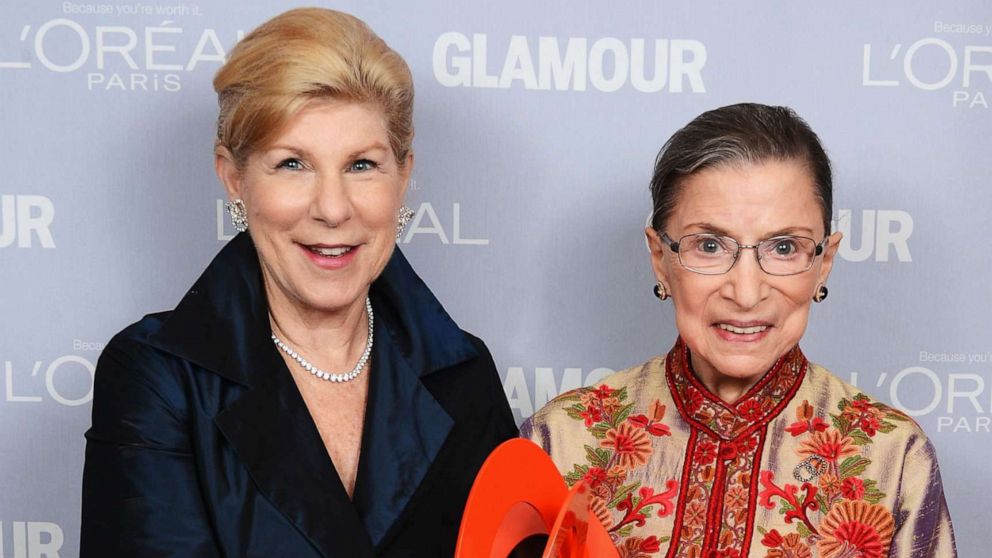


Ruth Bader Ginsburg's longtime friend, NPR legal affairs correspondent Nina Totenberg, is speaking out on Ginsburg's life and legacy.
The Supreme Court justice died Friday at the age of 87 due to complications of metastatic pancreatic cancer. Totenberg met Ginsburg 50 years ago when she first started covering the court.
"I was reading a brief about sex discrimination, I didn't understand it," Totenberg said live Monday on "Good Morning America." "I picked up the phone and called her and I got an hourlong lecture on the 14th amendment equal protection guarantee. I was like a stuffed goose afterwards."
She went on, "And then the next time we met was in person and we were at some conference . . . it was very boring and so, well, we did what lots of other women do. We went shopping."
Ginsburg died surrounded by her family at her home in Washington, D.C. She survived four battles with cancer over her Supreme Court career, never having to recuse herself from casework because of illness. In Dec. 2018, she was absent from oral arguments for the first time in 26 years after undergoing lung cancer surgery, though she participated in the cases remotely. During the COVID-19 pandemic, she joined oral arguments by phone from a Maryland hospital where she was being treated for a gallbladder infection.
In 2000, Ginsburg officiated at Totenberg's wedding, but it almost didn't happen when she was hospitalized the night before for a blockage caused by the radiation and chemo she had had, Totenberg said.
"She said that it was my election eve and she was not about to let me be worried and like thousands of other people who have had this experience, she showed up the next day to perform the wedding ceremony -- never told me that anything had happened until after the ceremony, after the dinner," Totenberg recalled.
Ginsburg was one of nine women in a class of 500 students at Harvard Law School in 1956 and became the first female member of the Harvard Law Review. She later transferred to Columbia University Law School, following her husband, Marty, who had landed a job in Manhattan.
MORE: 'RBG': What you'll learn from the new Ruth Bader Ginsburg documentaryWhen she graduated top of her class in 1959 without a single job offer from a New York law firm, she accepted a clerkship with a federal judge in Manhattan. Ginsburg then pursued the law through academia, first as a researcher at Columbia and later joining the faculty of Rutgers University in New Jersey, where she became one of the first women to teach at any American law school. In the 1970s, Ginsburg began taking up sex discrimination cases with the American Civil Liberties Union (ACLU) and co-founded its Women's Rights Project. She argued six cases before the Supreme Court and won five of them.
In the latter part of her career, Ginsburg also became a pop culture icon. Her life was the subject of the Hollywood biopic, "On the Basis of Sex" and the 2018 Oscar-nominated documentary "RBG." Ginsburg was considered a pioneer for sex equality and was affectionately dubbed "The Notorious RBG." Her image is seen on T-shirts, coffee mugs and tattoos, and she was often portrayed on "Saturday Night Live."
"I've been thinking a lot about why she became such a cultural icon in her 80s in all different forms," Totenberg said. "She was such a stand-up person, but she wasn't just a stand-up version for individuals who were her friends, or who she knew about."
"She was a stand-up person for everyone -- for women, for minorities, for gays. That was her biggest role, in some ways on the court was that she was a stand-up person for America and for Americans as individuals."
ABC News' Devin Dwyer contributed to this report.